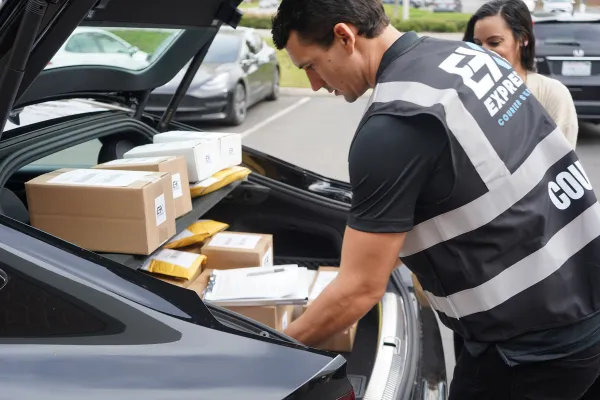
Last-Mile Delivery in Healthcare
In the realm of healthcare logistics, the "last mile" refers to the final leg of the journey for medical products, pharmaceuticals, and even healthcare services to reach their intended destination: the patient. This crucial phase, while seemingly simple, presents unique challenges and opportunities that have a profound impact on patient outcomes, satisfaction, and the overall efficiency of the healthcare system.
The Importance of Last-Mile Delivery in Healthcare
The last-mile delivery plays an important role in ensuring timely access to essential medical supplies, medications, and treatments. In many cases, the promptness of delivery can be a matter of life and death, particularly for patients with chronic conditions, those requiring urgent care, or individuals in remote or underserved areas. Additionally, the last mile can significantly influence the patient experience, as it involves direct interaction with healthcare providers and delivery personnel. A smooth and efficient last-mile delivery can enhance patient satisfaction and trust in the healthcare system.
Challenges in Last-Mile Healthcare Delivery
Complex Regulatory Landscape: The healthcare industry is subject to strict regulations regarding the transportation and handling of medical products. This complexity can lead to delays and logistical hurdles, especially when dealing with temperature-sensitive items like vaccines or biologics.
Infrastructure Limitations: In many regions, particularly rural or remote areas, the lack of adequate infrastructure can pose significant challenges to last-mile delivery. Poor road conditions, limited access to transportation, and lack of cold chain storage facilities can hinder the timely and safe delivery of medical supplies.
Cost Considerations: The cost of last-mile delivery can be substantial, especially when dealing with specialized transportation requirements for sensitive medical products. Balancing cost-effectiveness with the need for timely delivery is a constant challenge for healthcare providers and logistics companies.
Patient Expectations: Patients increasingly expect convenient and flexible delivery options. This includes same-day delivery, evening or weekend deliveries, and the ability to track their shipments in real-time. Meeting these expectations requires innovative solutions and adaptable delivery models.
Data Security and Privacy: The last mile often involves the sharing of sensitive patient information, such as medical records and prescriptions. Ensuring the security and privacy of this data is paramount to maintaining patient trust and complying with healthcare regulations.
Innovations in Last-Mile Healthcare Delivery
To address these challenges and improve the last mile, several innovative solutions are emerging:
Drones and Autonomous Vehicles: The use of drones and autonomous vehicles is being explored to overcome infrastructure limitations and reach remote or inaccessible areas. These technologies have the potential to revolutionize the delivery of medical supplies, especially in emergency situations.
Mobile Health Clinics: Mobile health clinics bring healthcare services directly to patients, eliminating the need for travel and reducing the burden on traditional healthcare facilities. These clinics can offer a wide range of services, from vaccinations to diagnostics and treatment.
Smart Packaging: Smart packaging solutions with built-in sensors can monitor the temperature, humidity, and other environmental conditions of medical products during transit. This ensures the integrity of the products and alerts stakeholders to any potential issues.
Telemedicine and Remote Monitoring: Telemedicine and remote patient monitoring technologies enable healthcare providers to connect with patients virtually, reducing the need for in-person visits and facilitating the remote delivery of care.
Data Analytics and Predictive Modeling: Data analytics and predictive modeling can optimize delivery routes, improve inventory management, and predict demand patterns, ultimately enhancing the efficiency and effectiveness of last-mile delivery.
The Future of Last-Mile Delivery in Healthcare
The future of last-mile healthcare delivery is poised for significant transformation. As technology continues to advance and new delivery models emerge, we can expect to see:
Increased use of drones and autonomous vehicles: These technologies will become more prevalent, enabling faster and more efficient deliveries to remote and underserved areas.
Greater integration of telemedicine and remote monitoring: Virtual care will play an increasingly important role in last-mile delivery, reducing the need for physical transportation and expanding access to healthcare services.
Smart packaging solutions will become the norm: The use of smart packaging will ensure the safe and timely delivery of temperature-sensitive medical products, enhancing patient safety and reducing waste.
Data analytics and predictive modeling will optimize delivery routes and inventory management: These tools will improve efficiency, reduce costs, and enhance the overall patient experience.
Last-mile delivery in healthcare is a critical component of ensuring timely access to essential medical products and services. By addressing the challenges and embracing innovative solutions, we can improve patient outcomes, enhance healthcare access, and build a more resilient and responsive healthcare system.